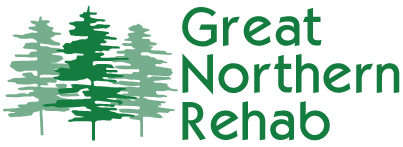By: Marie Serrado
Golf is a sport beloved by millions worldwide, offering not just physical challenges but also mental stimulation and opportunities for socializing. However, like any physical activity, golf can take a toll on the body, leading to injuries and limitations in performance. That’s where physical therapy comes in. In this blog, we’ll explore how physical therapy can help golfers of all levels improve their game and prevent injuries.
Understanding the Demands of Golf:
Golf requires a combination of strength, flexibility, balance, and coordination. The golf swing, in particular, places significant stress on the body, involving complex movements that engage multiple muscle groups and joints.
Addressing Common Golf Injuries:
Golfers are prone to a variety of injuries, including lower back pain, shoulder injuries, elbow pain (such as golfer’s elbow), and wrist injuries. These injuries can result from poor swing mechanics, overuse, or underlying musculoskeletal imbalances. Physical therapists are trained to assess and treat these issues, helping golfers recover from injuries and prevent future occurrences.
Correcting Movement Patterns:
Many golfers develop faulty movement patterns or compensations due to muscle imbalances or previous injuries. These movement patterns can negatively impact performance and increase the risk of injury. Physical therapists are skilled at identifying and correcting these issues through targeted movement assessments and corrective exercises, helping golfers optimize their biomechanics and reduce strain on the body.
Correcting movement patterns can include:
- Movement assessment
- Biomechanical Assessment
- Functional Exercises
Conclusion:
In conclusion, physical therapy is a valuable resource for golfers looking to improve their game, recover from injuries, and prevent future setbacks. Whether you’re a weekend warrior or a professional golfer, working with a physical therapist can help you optimize your physical health and performance on the course. So, before you tee off, consider incorporating physical therapy into your training regimen to ensure a lifetime of enjoyment on the links.
References:
- Halseth, Adam. “Improve Your Golf Swing.” Foothills Physical Therapy & Sports Medicine – Phoenix Metro, 6 Feb. 2024, foothillsrehab.com/blog/exercises-for-pain-management-and-improving-your-golf-swing/. Accessed 28 Mar. 2024
- Evans, Kerrie, and Neil Tuttle. “Improving Performance in Golf: Current Research and Implications from a Clinical Perspective.” Brazilian Journal of Physical Therapy, vol. 19, no. 5, Oct. 2015, pp. 381–389, www.ncbi.nlm.nih.gov/pmc/articles/PMC4647149/, https://doi.org/10.1590/bjpt-rbf.2014.0122.




